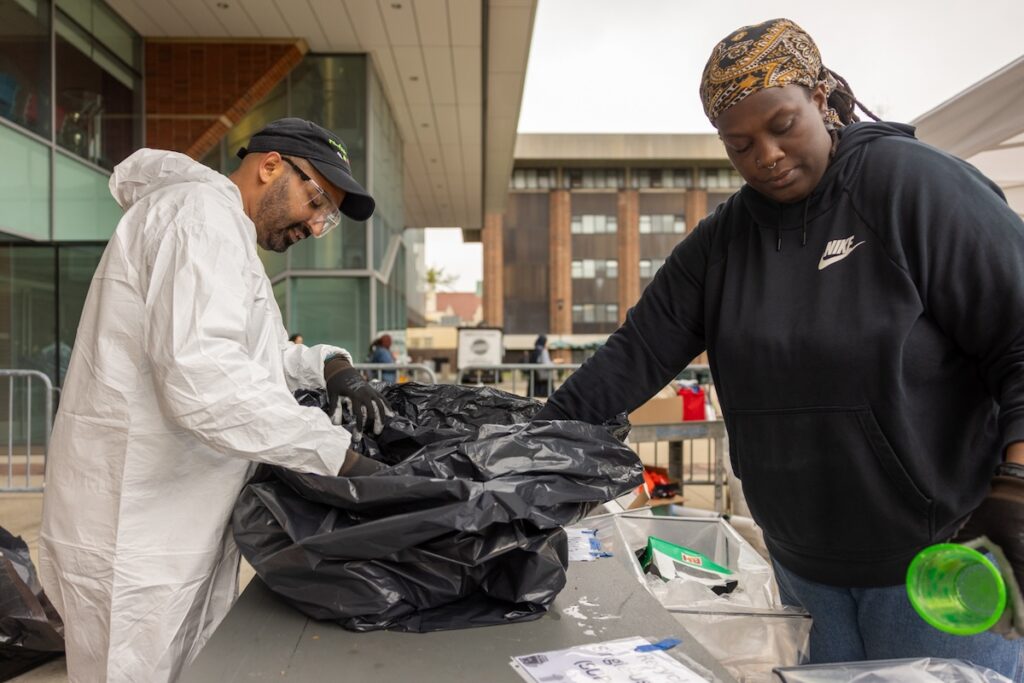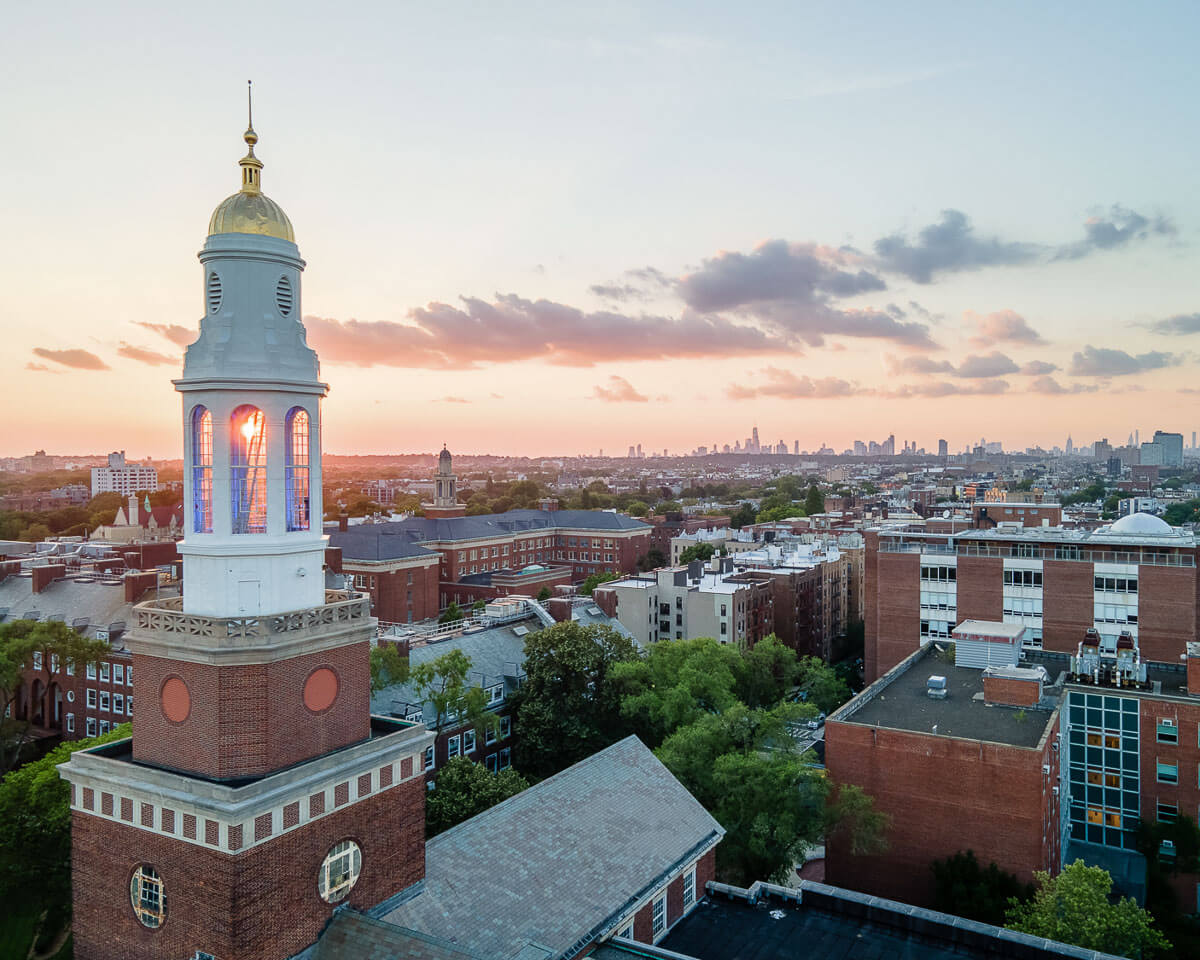Brooklyn College was recognized in The Princeton Review’s Guide to Green Colleges for 2025. Based primarily on surveys the company conducted in 2023–24 of administrators at nearly 600 colleges and analyses of more than 25 survey data points, the guide profiled 511 schools which were selected for their exceptional programs, policies, and practices related to sustainability and the environment.
Sustainability is a stated value in Brooklyn College’s Strategic Plan 2024–2029. From research assessing climate impacts to flood-prone communities, curriculum development that emphasizes the campus as a living lab, facility upgrades, and numerous student initiatives, the college is committed to a transformative educational experience that emphasizes sustainability and providing a safe and sustainable campus.

Stalin Espinal, sustainability coordinator from the Office of Environmental Health and Safety, and Yarnelle Bauzil, coordinator for the college’s community garden, separated trash at the college’s first large campus waste audit in April 2024, which assessed recycling practices.
Most recently, the college’s Office of Environmental Health and Safety released a 2024 Waste Audit Report that highlighted composting opportunities and the impact of single-use plastics. The office also released its Annual Impact Report on Campus Sustainability that highlighted several benchmarks from key focus areas—campus operations, environmental justice, engagement, waste minimization, academics, nutrition, and others—while offering forward-thinking plans for the future.
Some areas where the campus shined include:
• Just Transitions: Continued progress on BuildSmart 2025 Goals through improved accounting of energy savings by project, with 10 energy conservation projects completed, representing one million kWh saved. Collaborating with New York Power Authority and Sustainable CUNY, launched a project to build a decarbonization roadmap while reducing impacts to the local community and increasing resiliency.
• Increased Student Engagement: More than 252 volunteers contributed 454 hours to sustainability initiatives.
• Waste Reduction: Released guidelines for green events and achieved a 27.7% waste diversion rate through increased recycling and composting initiatives.
• Improved Campus Operations: Converting to LED lighting in 20% of re-lamping locations, which represents 37 tCO2. Partnered with NYC Parks to establish a native plant bed. Piloted a food waste collection program.
• Reduced Reliance on Bottled Water: Installed an additional five water bottle refilling stations, with more than 375,000 plastic bottles diverted from landfills.



